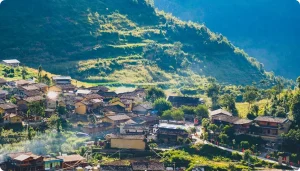
Tanzania is known for it world-class opportunities for big game spotting and stunning National Parks (Có Content)
1. The value of silver pots in tea ceremony culture
1. The value of silver pots in tea ceremony culture
1. The value of silver pots in tea ceremony culture
1. The value of silver pots in tea ceremony culture
1. The value of silver pots in tea ceremony culture
- List item 1
- List item 2
- List item 3
- List item 1
- List item 2
- List item 3
Link: TestLink
Then, suddenly, it was all over. As China’s economy slowed amid months of COVID lockdowns, Wei’s employer made a wave of layoffs. Wei lost his job, and struggled to find a new one. Soon after, he had to leave Shenzhen for a cheaper city nearby. He appeared to be on a road to nowhere.
“I never said no to any assignments — my performance was one of the best,” Wei tells Sixth Tone.
Last summer, Wei Ziyi’s life fell apart. The 26-year-old had spent years fighting to climb the ladder of middle-class Chinese life: Moving to the southern metropolis of Shenzhen, scoring a marketing job at a tech company, and working grueling hours month after month to impress his bosses.
But, one year later, Wei says he’s happier than ever. He has decided to lean into his sense of rootlessness, and embrace a “drifting” lifestyle. He has bought a van, filled it with decks and speakers, and now makes a living by hosting impromptu dance parties at different beach resorts along China’s coastline. It’s unclear exactly how many people are drifting, but the Chinese social platform Xiaohongshu is filled

Test caption
2. Over thousands of years, silver pots have always been valued
As the job market gets increasingly competitive, and prices of consumer goods and property continue to climb, even educated young people are finding the core goals of migration — a stable job, a home in the city, a sense of fulfillment at work or in life — are always just out of reach,” says Yang. “They reject mainstream values and expectations: the tracks that guide and ultimately rule their lives.”
Tanzanian music, particularly Bongo Flava, is popular not only within the country but also across East Africa. Traditional dance forms like “Ngoma” are also cherished, often performed during cultural festivals and celebrations. Tanzanian music, particularly Bongo Flava, is popular not only within the country but also across East Africa. Traditional dance forms like “Ngoma” are also cherished, often performed during cultural festivals and celebrations.Tanzanian music, particularly Bongo Flava, is popular not only within the country but also across East Africa. Traditional dance forms like “Ngoma” are also cherished, often performed during cultural festivals and celebrations.Tanzanian music, particularly Bongo Flava, is popular not only within the country but also across East Africa. Traditional dance forms like “Ngoma” are also cherished, often performed during cultural festivals and celebrations.Tanzanian music, particularly Bongo Flava, is popular not only within the country but also across East Africa. Traditional dance forms like “Ngoma” are also cherished, often performed during cultural festivals and celebrations.
3. Water is the mother of tea, tools are the father of tea
But it took a while for him to build up the courage to start down a different path. After losing his job, he spent weeks in a daze. “I don’t have to work today, so what should I do?” he often found himself thinking.
In the end, Wei decided to let the universe decide his fate. He submitted a few songs to a music contest in the southwestern city of Chengdu, and told himself: “If I get through to the next round, I’ll go to Chengdu; if not, I’ll keep looking for a job.”
For Wei, the longing to drift had been building for years. At high school, he recalls devouring Han Han’s 2010 road novel “1988: I Want to Talk With the World.” After starting university, he became a hardcore electronic music fan and dreamed of touring the world as a DJ. He often felt like he and his classmates were on autopilot — blindly following a route laid out for them by society.

4. Historical origin, practical value
Along the coastline of Tanzania, particularly in places like Zanzibar and Dar es Salaam, beach bonfires are a common sight. Locals and tourists gather around the fire to enjoy grilled seafood, music, and dancing under the stars.
| title | title | title | title | title |
| Water is the mother of tea, tools are the father of tea |
|
Tanzanian music, particularly Bongo Flava, is popular not only within the country but also across East Africa. Traditional dance forms like “Ngoma” are also cherished, often performed during cultural festivals and celebrations. Tanzanian music, particularly Bongo Flava, is popular not only within the country but also across East Africa. Traditional dance forms like “Ngoma” are also cherished, often performed during cultural festivals and celebrations.Tanzanian music, particularly Bongo Flava, is popular not only within the country but also across East Africa. Traditional dance forms like “Ngoma” are also cherished, often performed during cultural festivals and celebrations.Tanzanian music, particularly Bongo Flava, is popular not only within the country but also across East Africa. Traditional dance forms like “Ngoma” are also cherished, often performed during cultural festivals and celebrations.Tanzanian music, particularly Bongo Flava, is popular not only within the country but also across East Africa. Traditional dance forms like “Ngoma” are also cherished, often performed during cultural festivals and celebrations. | content | content |
| Water is the mother of tea, tools are the father of tea | content | content |


